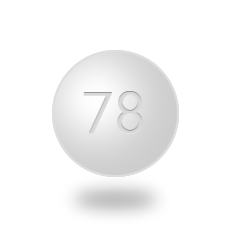Plan B
Plan B is an emergency contraceptive pill. Some people call it the ‘morning after pill’. But it is not necessary to wait till the morning after sex. In fact, this medicine is more effective if you take it as soon as possible after sex. The pill consists of 1.5 mg levonorgestrel which is used in several birth control pills in low amounts.

Uses
This is a birth control pill which helps in the prevention of pregnancy after unprotected sex. Plan B works by preventing ovulation, interfering the process of fertilization of egg and delaying the ovulation. It is also possible that Plan B stops the implantation of a fertilized ovum on the uterus by changing the uterine lining.
By increasing the viscosity of the cervical mucus, it prevents sperm from entering the uterus and joining with the eggs, i.e. conception. The hormone also affects the inner layer of the uterus (endometrium), preventing the egg from penetrating it.
The journey of an egg to the uterus takes about 3 days, and it takes almost as long for it to attach to the uterine wall. This explains the maximum allowable period of 5 days, after which there is no point in using emergency contraceptives and abortion is required. According to statistics, the effectiveness of hormonal contraception is approximately 95%, and the sooner you take the pill, the more likely it is to work. Confirmation that the contraceptive has worked will be the next or similar bleeding (the so-called early menstruation) 5-6 days after taking the pill. If your period is "late", you can take a pregnancy test.
How To Use
If this medicine is taken within 72 hours after unprotected sex, then the risk of pregnancy is reduced up to 89%. And it is 95% efficient in preventing pregnancy if Plan B is taken within 24 hours of unprotected sex. It should not be utilized as the regular contraceptive pill as this drug is not that efficient.
So, if you have a condom tear during an intimate encounter or forget about it, don't panic and take the first Plan B pill. Remember that you have a few days to make a difference. Before using contraceptive pills after an act of intimacy, a woman is advised to make an appointment with a doctor, undergo a gynaecological examination and choose the best emergency contraceptive method, taking into account the specifics of her menstrual cycle and health status.
When you can use the Plan B: common cases
Usually, emergency contraception is needed after unprotected intercourse, when there were no other methods or problems with the condom. Cases when Plan B will be effective:
- you missed taking oral contraceptive pills that you use on a regular basis;
- the contraceptive patch has come off, it was put on too early or too late;
- the vaginal ring came out or was applied late;
- spermicide pills or suppositories did not have time to melt before sexual intercourse;
- it was a "dangerous" day in the menstrual calendar;
- there was violence without using contraception.
If you decide to use emergency contraception, try to do so as soon as possible.
Side Effects
Many females have used emergency contraceptive pills without any serious complications. But it is always good to ask you health care provider about the possible interactions with other drugs. Plan-B is considered safe for maximum women. Potential side effects caused by this medicine are as follows: headache, missed periods, tightness in chest, swollen face, mouth or lips, skin rashes, itching, hives, vaginal spotting, nausea, menstrual changes, abdominal pain, fatigue, breast tenderness, dizziness, abdominal cramps, vomiting. If you experience vomiting within 2 hours of usage then instantly call the doctor to find out of you should continue the dose. You may also encounter some unexpected bleeding problems while using this medication. This effect should disappear at the next menstrual period. It is also possible that this drug may cause your next menstruation to be lighter or heavier than usual. The time of menstrual cycle may also change during the use of Plan B. Get a pregnancy test conducted if you don’t notice your periods within 3 weeks to ensure that you are not pregnant.
Some girls are afraid to take the morning-after pill because of the many myths associated with it. One of these myths - that they are abortifacients that instantly undermine the entire endocrine system - is based on the high content of hormones in one pill. Indeed, the 1.5 mg dose of levonorgestrel required for emergency pregnancy prevention is quite high: the same amount can be obtained in 10 days of taking conventional oral contraceptives. But the devil is not as bad as he is painted. The main side effects are a shift in the menstrual cycle, a change in the amount of discharge and increased breast sensitivity. Sometimes postcoital contraceptive pills cause nausea. Also, 5-6 days after taking the pill, you may experience unscheduled bleeding, which usually lasts as a regular menstrual period, but due to individual characteristics of the body, it can last up to 10-14 days. This phenomenon is the body's natural response to a large dose of hormones, and there is no need to worry about it. In fact, this is an artificially induced menstruation and a sure sign that pregnancy has not occurred. Increased unpleasant effects should be expected if you take more than one dose during your menstrual cycle. Sometimes, due to an overdose, the menstrual schedule is so disrupted that they disappear for a month or longer. It should be noted that unprotected sex after taking the pill can lead to pregnancy, so no one has cancelled the need to use protection.
Is it safe to use Plan B in adolescence?
Studies involving girls aged 13 to 16 years have shown that Plan B are safe for use in patients in this age group.
Contraindications
Do not use this medicine if you are allergic to any ingredient present in Plan B. Plan B is contraindicated in patients having unusual vaginal bleeding, having a history of suspected breast cancer, stroke, blood clotting disease or history of brain hemorrhage. Do not use Plan b if you are taking rifampin, nevirapine or St. John’s wort. Plan B may make you feel dizzy. This dizziness may worsen if this drug is taken with some other medicines or alcohol. Plan B may alter your blood sugar. Thus diabetic patients should avoid the use of Plan B.
Pregnancy And Plan B
Plan B will not stop an existing pregnancy. Thus do not use this medication during the gestation period. Some traces of Plan B are also excreted into the maternal milk. Avoid breast-feeding during the use of Plan B as it could harm your nursing baby.
Lactation is not an absolute contraindication to taking emergency contraceptives, but if there is a possibility of pregnancy and a woman does not want to become a mother again, the use of such a pill is permissible. When taking levonorgestrel while breastfeeding, a small amount of hormones (about 0.1% of the dose) may pass into breast milk, but there is no confirmed evidence of any harm to the baby. If you are using a drug containing mifepristone, you should refrain from breastfeeding for 14 days.
When does fertility recover after taking Plan B?
The planned contraceptive preparation can be taken the day after taking Plan B. It is not necessary to wait for the beginning of the next menstrual cycle. It is necessary to contact an obstetrician-gynaecologist and solve this issue on an individual basis.
Can I drink alcohol after emergency contraception?
Alcohol does not affect the effectiveness of Plan B and does not interact with them. However, alcohol may interfere indirectly: if you take the drug in the morning and feel sick due to a hangover, you will have to take another dose within three hours.
Emergency Contraceptive Pill
Emergency contraceptive pills are taken when unprotected sex has taken place and pregnancy is not on the cards. The effectiveness of the drugs is estimated at about 95%.
Emergency contraception is one of the methods to prevent pregnancy after sexual intercourse. However, this method is prohibited for regular use. The way the pill works is to prevent ovulation. However, the drugs cannot cause an abortion if you are already pregnant.
Another option for IVF is an IUD, which is placed in the uterus. It provides copper particles that help destroy sperm, which is also an effective method. However, emergency contraception cannot protect you from sexually transmitted diseases.
Related Drugs
Levlen
Conditions:
Birth Control

Yasmin
Conditions:
Birth Control

Ortho Tri-Cyclen
Conditions:
Birth Control

Ovral
Conditions:
Birth Control




